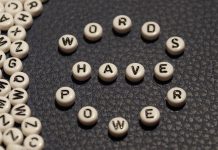Although nutrients are important at every age, some are even more important for senior citizens. As with all nutrients, it’s much better to ingest them as food than as supplements.
Vitamin D
Your own body can manufacture vitamin D with the help of the sun. That’s the good news. The bad news is that sitting in the sun is not as popular as it once was. In order to make enough of your own vitamin D, you need to sit in the sun for about 20 minutes before applying sunscreen.
Vitamin D is important because it helps strengthen the immune system and keeps the heart and brain functioning well. You can take a vitamin D supplement or eat foods containing it like oily fish or egg yolks.
Keep in mind that it is possible to take too much vitamin D, but that will not happen from food or sun exposure, only with supplements.
Calcium and Magnesium
Calcium and magnesium should be taken together and many supplements combine calcium and magnesium. Most people know that calcium is necessary for strong bones and teeth. However, when calcium is taken without magnesium, it does not get absorbed into bones. Instead, it deposits itself in softer areas of the body which can lead to arthritis and even toxicity.
Because osteoporosis is common among the elderly, it’s important to take enough calcium and magnesium to keep bones strong. Otherwise, it is very easy and common to break bones and that can lead to becoming bedridden and having many other things go wrong.
Dairy products and green, leafy vegetables are great dietary sources of calcium. After the age of 70, both men and women need 1200 mg of calcium daily to stay strong so you should try to eat calcium-rich foods every day.
Potassium
A potassium deficiency can cause many common symptoms of the aging population. Weakness, heart palpitations, muscles stiffness and breathing difficulty can all be alleviated by eating enough potassium.
To avoid this and keep these systems running smoothly, seniors should ingest 4700 mg of potassium a day. To give you an idea of how much this is, one banana contains 422 mg, or about one-tenth of the daily requirement.
Luckily, potassium absorption happens quickly so eating fruits like bananas, oranges, melons and grapefruit can quickly increase potassium levels and almost immediately improve dizziness and heart irregularities.
Other common foods containing potassium are potatoes, broccoli and spinach but they must be cooked to reap the benefits.
It’s best to try and get your daily supply of potassium from foods because overdosing with supplements is a possibility and the results can be very serious. They range from confusion to muscle weakness and irregular heartbeat and can end with coma.
Fiber and Water
As well as nutrients, two other things are important for seniors: fiber and water.
The main reason seniors need plenty of fiber is to speed the digestive process along and discourage weight gain. Eating enough fiber will also avoid most digestive problems. Whole grains, fruits and vegetables are the best sources of dietary fiber.
Staying hydrated by drinking enough water is important for everyone, but today’s seniors aren’t used to as much water intake as the younger generations are. Try various ways to get enough moisture into your system like making popsicles in summer and brothy soups in winter.
Unfortunately, once a person feels thirsty, they are well on the way to dehydration. Symptoms of dehydration are headache or feeling dizzy and tired. Urine color is a good indication of whether water intake needs to be increased. Dark urine is a clear sign that your body is crying out for more hydration.
Pay attention to these requirements and healthy aging should be a breeze. Remember that it’s always better to obtain your nutrients from food rather than supplements and if in doubt, your nutrient levels can be checked with a simple blood test.























